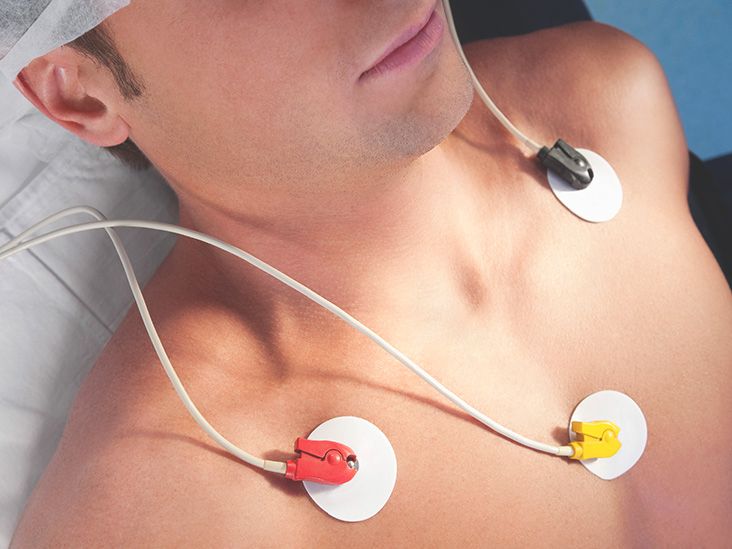
Understanding the Role of an Electrocardiologist
An electrocardiologist, sometimes referred to as a cardiac electrophysiologist, is a specialized type of cardiologist focused on the heart's electrical system. They possess the same foundational medical training as conventional cardiologists but undergo additional specialized training in diagnosing and managing conditions related to heart rhythm disorders, known as arrhythmias.
Conditions Managed by Electrocardiologists
Electrocardiologists treat a variety of heart rhythm issues, termed arrhythmias, which occur when there are problems with the electrical impulses that control heartbeats. Some arrhythmias may not present obvious symptoms, making them detectable only through routine medical check-ups. These specialists can effectively identify the specific type of arrhythmia, providing appropriate treatment solutions.
Common Types of Arrhythmias
-
Atrial Fibrillation (AFib): A common arrhythmia characterized by disorganized electrical impulses that cause the heart's upper chambers to beat out of sync with the lower chambers. Symptoms may include:
- Heart palpitations
- Unusual fatigue
- Dizziness
- Shortness of breath
- Chest pain
-
Bradycardia: This condition is identified by a heart rate below 60 beats per minute, which can lead to symptoms such as:
- Fainting
- Dizziness
- Fatigue
- Shortness of breath
- Chest pain
-
Tachycardia: Defined by a resting heart rate exceeding 100 beats per minute. Types include:
- Supraventricular Tachycardia (SVT)
- Ventricular Tachycardia (VT)
- Ventricular Fibrillation, which can severely disrupt blood flow and may lead to life-threatening conditions if not addressed.
- Sudden Cardiac Arrest: An abrupt cessation of heart activity, which can occur suddenly in individuals, regardless of existing heart disease.
- Long QT Syndrome: This disorder affects the heart's electrical recovery process and can result in fainting, seizures, or even sudden death.
- Wolff-Parkinson-White Syndrome: A congenital condition featuring extra electrical pathways, causing heart palpitations, breathlessness, and chest discomfort.
It’s essential to note that certain arrhythmias may not stem from underlying medical issues. Factors like pregnancy or medication side effects can also result in irregular heartbeats, which an electrocardiologist can help distinguish.
Training and Qualifications of Electrocardiologists
Electrocardiologists, being a subspecialty of cardiology, undergo extensive training—a total of approximately ten years after earning their undergraduate degree. This includes:
- Four years in medical school
- Three years of residency in general internal medicine
- Three years of specialized cardiovascular training
To become an electrocardiologist, a cardiologist must pursue an additional two years of training, culminating in board certification in clinical cardiac electrophysiology.
Comparative Insight: Electrocardiologist vs. Cardiologist
The key distinction between an electrocardiologist and a general cardiologist lies in their specific training and focus. While electrocardiologists specialize predominantly in electrophysiology and the management of heart rhythm disorders, cardiologists have a broader focus but receive only limited training in this subfield.
When to Consult an Electrocardiologist
If a general physician identifies an irregular heartbeat during an examination, they may refer you to an electrocardiologist for further testing. Symptoms that prompt a consult can include:
- Dizziness
- Heart fluttering or palpitations
- Chest discomfort
- Lightheadedness
- Excessive sweating
- Fainting spells
- Unusual fatigue
Such symptoms warrant immediate medical attention, especially if you have risk factors like:
- High blood pressure
- Diabetes
- Obstructive sleep apnea
- History of heart disease
- Thyroid disorders
Diagnostic Procedures Used by Electrocardiologists
To pinpoint the cause of an arrhythmia, electrocardiologists employ a variety of diagnostic tests, which may include:
- Electrocardiogram (EKG/ECG): Measures the heart's electrical activity while at rest.
- Echocardiogram: Utilizes ultrasound waves to provide images of the heart’s size, shape, and function.
- Holter Monitor: A portable ECG worn for 24-48 hours to monitor heart rhythms during daily activities.
- Event Monitor: A device worn for a month that records heartbeats when activated during symptoms.
- Stress Test: Evaluates heart activity through exercise while monitoring electrical activity.
- Tilt Table Test: Assesses the causes of fainting by measuring heart rate and blood pressure during changes in posture.
Timely diagnosis of arrhythmias is crucial, as they can pose serious health risks. Electrocardiologists are equipped with the knowledge and skills to identify irregular heart rhythms and suggest effective treatment options.
Conclusion
If you experience symptoms indicative of a heart arrhythmia, such as chest pain or palpitations, it is essential to seek medical advice. Electrocardiologists are specialists dedicated to diagnosing and managing arrhythmias, ensuring appropriate interventions. Your primary healthcare provider can refer you to a qualified electrocardiologist or assist you in locating one in your area.
Reading What Is an Electrocardiologist?
